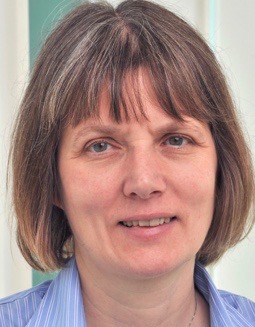E. Sally Ward,
Professor,
Texas A&M University Health Science Center
Sally Ward completed her Ph.D. research in the Department of Biochemistry, Cambridge University in 1985 in the laboratory of Professor David Ellar. From 1985-1988 she was a Research Fellow at Gonville and Caius College whilst working at the Department of Biochemistry, Cambridge University. From 1988 to 1990, she held the Stanley Elmore Senior Research Fellowship at Sidney Sussex College whilst carrying out research in Sir Greg Winter’s laboratory at the MRC Laboratory of Molecular Biology, Cambridge. In 1990 she joined UT Southwestern Medical Center, Dallas, as an Assistant Professor. From 2002-2014, she was a Professor in the Department of Immunology at UT Southwestern and in 2004 was appointed to the Paul and Betty Meek-FINA Professorship in Molecular Immunology. Since 2014, she has been a Professor at Texas A&M University Health Science Center. Her current research includes the use of a combination of fluorescence imaging, protein engineering and in vivo studies to develop therapeutics to treat cancer and autoimmunity. She was a founding co-organizer of the Gordon Research Conference ‘Antibody Biology and Engineering’ in 2010. She is a member of the Board of Distinguished Advisors in the Antibody Society and serves on the editorial boards of mAbs and Protein Engineering, Design and Selection.
|

|
|

 Add to Calendar ▼2018-05-25 14:00:002018-05-25 15:00:00Europe/LondonExploiting the Multiple Functions of FcRn for TherapyStem Cells and Antibodies in Drug Discovery Europe 2018 in Cambridge, UKCambridge, UKSELECTBIOenquiries@selectbiosciences.com
Add to Calendar ▼2018-05-25 14:00:002018-05-25 15:00:00Europe/LondonExploiting the Multiple Functions of FcRn for TherapyStem Cells and Antibodies in Drug Discovery Europe 2018 in Cambridge, UKCambridge, UKSELECTBIOenquiries@selectbiosciences.com Add to Calendar ▼2018-05-24 00:00:002018-05-25 00:00:00Europe/LondonStem Cells and Antibodies in Drug Discovery Europe 2018Stem Cells and Antibodies in Drug Discovery Europe 2018 in Cambridge, UKCambridge, UKSELECTBIOenquiries@selectbiosciences.com
Add to Calendar ▼2018-05-24 00:00:002018-05-25 00:00:00Europe/LondonStem Cells and Antibodies in Drug Discovery Europe 2018Stem Cells and Antibodies in Drug Discovery Europe 2018 in Cambridge, UKCambridge, UKSELECTBIOenquiries@selectbiosciences.com